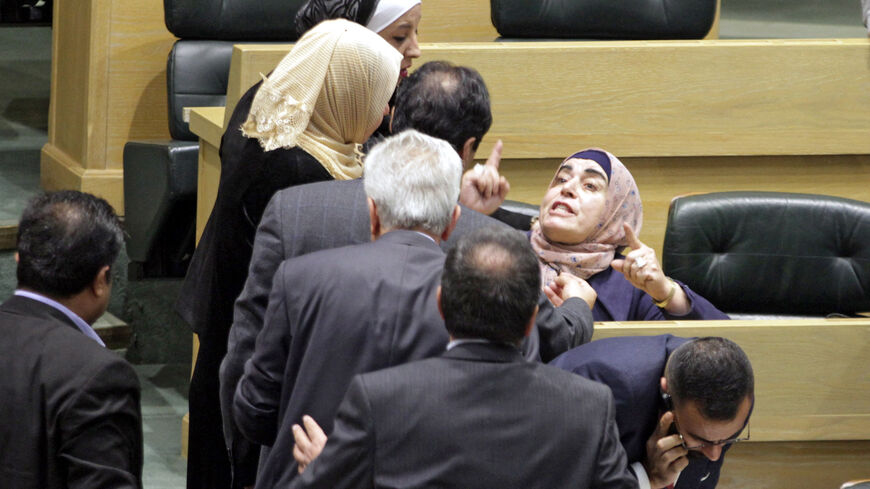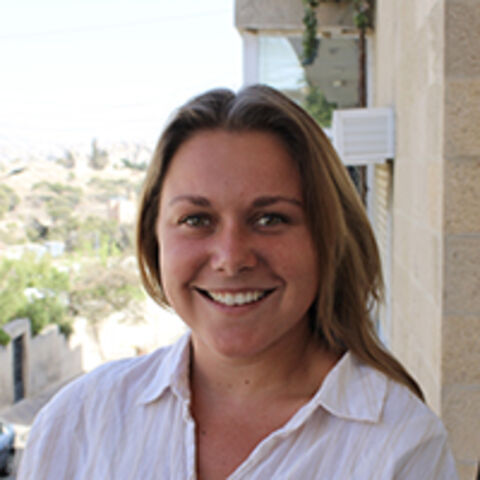Jordan’s queer community has come under a “brutal attack,” in what leading activists are saying is an “unprecedented” crackdown, spearheaded largely by the country’s conservative parliamentarians.
The wave of attacks — including calls to criminalize homosexuality — have largely ensued following plans to show the queer Egyptian film, “Shall I Compare You to a Summer’s Day,” at a socio-cultural space in the country’s capital, Amman. The showing, which had been planned for late June during Pride month, was later canceled due to demands from parliamentarians.
Hate speech and threats against members of the LGBTQ community and its supporters have spread widely on social media sites over the past month. Leading Jordanian human rights activist Hala Ahed and Musa al-Shadeedi, Arabic editor of the queer-feminist magazine MyKali, have both received a chain of attacks, including death and deportation threats, mainly from Islamist parliamentarians and influencers.
And as the anti-LGBTQ rhetoric has exploded on social media, homophobic cartoons and articles have also begun appearing in Jordan’s leading media platforms. Early this month, Jordan’s Al-Taj News site published an “investigative report” that exposed users of the dating app Grindr, and called to penalize its users and ban the application in the country.
Digital surviellance
While Jordan is one of the few Middle Eastern countries that has no laws that explicitly criminalize same-sex relations, the country’s penal code includes “immorality” provisions that are used to target sexual and gender minorities, according to the 2023 Human Rights Watch report on Jordan. State security forces have further used digital surveillance, based on the “immorality” provisions and the Cybercrime Law, to entrap, intimidate and arbitrarily arrest LGBTQ individuals, also according to the HRW report.
These methods have also been used in Lebanon, and Egypt where the targeting of the members of the community has been rising as well. More generally, the LGBTQ community faces discrimination and harsh laws across the region, that can be as extreme as execution as in the case of Iran.
Although sexual and gender minorities are frequently victims of violence and abuse, they have little recourse against the perpetrators in Jordan. According to a 2022 US State Department report on human rights in Jordan, some LGBTQ persons reported that when they sought protection from police, they were instead harassed, detained or even returned to dangerous situations.
“We have been marginalized to the extent that we cannot even protect ourselves,” Hasan Kilani, a Jordanian queer feminist writer and activist, told Al-Monitor. The violence against LGBTQ individuals often rises coinciding with waves of online attacks, Kilani added, as queer individuals in Jordan are now left with few avenues to seek protection.
“Queer people in Jordan have to suffer, and be quiet and be victimized,” a queer activist in Jordan, who requested anonymity due to security concerns, told Al-Monitor.
“We not only have to accept the situation, but we are also not allowed to criticize what we are being subjected to,” he said.
Islamist parties
The queer community in Jordan is often blasted by Islamist political parties that have previously denied the existence of LGBTQ individuals, as well as called for their removal from the country.
Dima Tahboub, a former member of parliament and the English-media spokeswoman for the Islamic Action Front, the political arm of the Muslim Brotherhood in Jordan and the country’s most popular political party, has led much of the campaign against queer individuals, including the latest attacks.
“The majority of Jordanians support the basic human instinct that God created humanity as male and female and that families evolve from legal matrimony,” Tahboub told Al-Monitor. “It is our right as Muslims and Arabs to refuse any system that clashes with our beliefs and culture and such rejection should be respected as long as it abides by our national law,” she said, mentioning the public support she has received for the anti-LGBTQ campaign and the growing calls from parliament to criminalize homosexuality.
The latest wave of attacks on Jordan’s queer community has also been amplified by the rise of homophobic speech and behavior throughout the entire region, sparked by the controversy surrounding LGBTQ rights brought up in the Qatar World Cup games last year.
Now, the ability for LGBTQ individuals in Jordan to meet, organize and defend their rights, as well as provide services within their community, is becoming increasingly limited.
The few, discreet, LGBTQ-friendly spaces, which once offered a small pocket of acceptance, are now under immense societal and governmental pressure. The only three initiatives that support LGBTQ rights on the ground have ceased their activities in the past few months as a result of the pressure, Kilani said. “We have literally zero spaces,” he added.
“There is a larger storm that we are stuck in the middle of and we don’t know the next step, or where to turn, because the places you could usually turn to are no longer there,” said an Amman-based activist for LGBTQ rights, who also requested anonymity for security concerns.
“Doors keep closing,” she told Al-Monitor. “It’s angering and it’s disheartening. Because you feel like you have hands but then they rip them off.”
Jadal for Knowledge and Culture, a nonprofit organization that provides a space for cultural and intellectual activities in Amman, was the intended venue to host the queer Egyptian film and has since been subject to immense backlash and interrogation from governmental figures.
Fadi Amireh, founder of Jadal, said that he and his team were not aware of the film's content since the event was planned by another organization unassociated with the space. But the government’s crackdown on the nonprofit is not something new for Amireh, whose space has long been held under close scrutiny. LGBTQ rights are always a “red-line” Jadal cannot cross, Amireh said.
Amireh noted that when he opened Jadal in 2012, in the immediate aftermath of the Arab Spring, there was more space for activism and discussion. But in recent years, the government has cracked down on not only political discussion, but also discussions on social issues, including “less-sensitive” topics such as feminism and workers’ rights.
“They [Jordanian authorities] don’t like open spaces, they are afraid of spaces that provide youth the opportunity to express themselves,” Amireh told Al-Monitor.
But he said that in Jordan, “there is an urge” for these types of discussions. “People want the space to think and to exchange and to share,” he said, adding that the effect on society will be detrimental if the state continues with its repression.
“Repression is a threat to progress and stability. It is not sustainable,” Amireh stated.
“We need the right to create our own space, or to create our own associations,” Kilani said.
“It’s so basic. It’s completely the right to have, as a minority, as a people who are being targeted based on their sexual orientation and gender identity,” he added.







